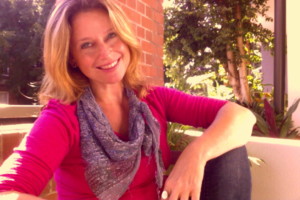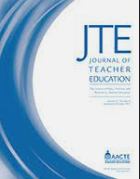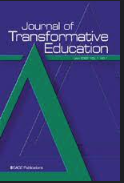Dr Tasha Riley’s work explores the transformative potential of educational enquiry for minoritized and silenced peoples. She has developed an international reputation for leading an integrated set of research projects that work individually and collectively to unmask sustained inequalities in educational and related settings, to possibilities for global and social justice.
 Tasha leads several research projects exploring how arts-based pedagogies may be used to increase teachers’ ability and confidence to engage learners in critical and sensitive discussions in schools, universities, and communities.
Tasha leads several research projects exploring how arts-based pedagogies may be used to increase teachers’ ability and confidence to engage learners in critical and sensitive discussions in schools, universities, and communities.
Currently, these include Weaving Stories: Conceptualising a Framework of Strength (Riley, Meston, Ballangarry, Low-Choy, McCormack, Kim, Nakar) and From Too Afraid to Speak, to Too Afraid Not To: Using arts-based pedagogies to increase teachers’ confidence and capacity to address race and Indigeneity in the classroom (Riley, Meston, Ballangarry, Low-Choy, McCormack).
Her research philosophy and skillset has developed from a diverse array of experiences; as a fine artist, an English teacher in South Korea and Andorra, tour leader in the Middle East and importantly, working in HIV/AIDS education in Francistown and D’Kar, Botswana and Vancouver, Canada.
Coming from a Sociology of Education background, Tasha felt the call to understand teacher’s’ expectations of Indigenous learners, and to unpack the deficit thinking that goes on behind this. Her work in HIV/AIDS education in both Botswana and Vancouver highlighted the impact of colonial policies on Indigenous peoples.
Tasha says:
“Teachers enter their practice out of a desire to do well for their students yet may still be influenced by the norms and biases of their society. If these assumptions are left unchecked, educational inequities may be exacerbated. There is a strong need for all of us, as educators, to interrogate our assumptions, attitudes, and beliefs, to ensure our students are not subjected to problematic assumptions around capabilities and potential which could limit students’ future opportunities.”
Her research is underpinned by a philosophy of working with, not for people, and is strongly grounded in social justice, with a focus on collegiality, collaboration, and inspiring people to not only be willing to learn, but excited to experiment
Over her years of experience, Tasha has learned how to tune into people’s readiness to new, sensitive information.
“One of the things we found in the work with HIV/AIDS, and other issues sometimes regarded as “sensitive” such as racism or discrimination, is that if a group is not ready to receive sensitive information, they may shut down. We know that some teachers are hesitant when it comes to teaching issues related to Indigeneity because of this fear of “getting things wrong,” “getting in trouble” or “offending someone”. What our team is attempting to do is to identify pedagogies, advocated by Indigenous scholars, that may help build teachers’ capacity and raise their confidence in this important area.”
Currently she teaches two subjects: ‘Education and Society’ and ‘World Indigenous Knowledges’. ‘World Indigenous Knowledges’ was co-created by Indigenous and non-Indigenous scholars, including Dr Harry Van Issum, Dr Sue Monk, Dr Tasha Riley. The course was more recently modified by Dr Troy Meston.
Tasha and her research teams are interested in learning about how other scholars, activists, artists, and educators have used the arts to inform and educate about these issues. This is what the project ‘Too Afraid to Speak’ is on.
Tasha says:
“Using several types of art forms to speak about different issues is highly effective. Trying to incorporate that into some of these courses is important. Stories are an important part of communication and learning, as they are more evocative and engaging. Arts based pedagogies and arts-based inquiry can help open both teacher’s and student’s eyes to controversial topics in a more digestible way.”
Tasha is motivated by seeing teachers’ dedication and drive towards making a change. She is encouraged by Australian pre-service teachers’ willingness to learn, understand, and embrace Indigenous ways of knowing and learning and incorporate it into their pedagogical practice. Through working together to advocate, we can seek to overcome institutional pressures and constraints.
Tasha says:
“My ideal is to have arts, Indigenous Knowledges, and community-based pedagogies integrated throughout schools and academia in meaningful and exciting ways.”
Read more about Tasha’s array of fascinating work on her Experts profile and below. For teachers and schools interested in the project “Too Afraid to Speak” the online survey link can be found here.




